
DomDuarte Pio, Duke of Braganza is the current Duke of Braganza and a claimant to the dormant Portuguese throne, as the head of the House of Braganza. The Miguelist Braganzas, to whom Duarte Pio belongs as great-grandson of King Miguel I, is a cadet branch of the House of Braganza. With the extinction of male-line dynasts descended from Queen Maria II in 1932, King Miguel's descendants became the only male-line Braganzas remaining and the closest male-line heirs to the defunct Portuguese throne.

Pedro Miguel de Santana Lopes is a Portuguese lawyer and politician, who is the current Mayor of Figueira da Foz. He most notably served as prime minister of Portugal from 2004 to 2005.

Carlos Paredes was a virtuoso Portuguese guitar player and composer. He is regarded as one of the greatest players of Portuguese guitar of all-time.
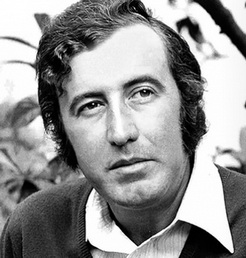
Adriano Maria Correia Gomes de Oliveira, GCIH, ComL, or just Adriano was a Portuguese musician, born to a conservative Roman Catholic family in Porto. His family moved to Avintes after his birth. He went to Coimbra to study at the University of Coimbra, and eventually dropped out, albeit being involved in the student activism and Coimbra fado music.

Vergílio António Ferreira, JOSE was a Portuguese writer, essayist, professor and a key figure in Portuguese-language literature. His prolific literary output, comprising works of fiction, philosophical essays and literary diaries, are generally divided into neorealism, dominant in Portuguese fiction at the time, and existentialism.

Joaquim Teófilo Fernandes Braga was a Portuguese writer, playwright, politician and the leader of the Republican Provisional Government after the overthrow of King Manuel II, as well as the second elected president of the First Portuguese Republic, after the resignation of President Manuel de Arriaga.
The Grand Orient of Portugal is a symbolic Masonic Obedience founded in 1802, thus being the oldest Portuguese Masonic Obedience. Its first Grand Master was Sebastião José de São Paio de Melo e Castro Lusignan, grandson of the first Marquis of Pombal, and his symbolic name was Egas Moniz.

Afonso of Braganza, Prince of Beira, is the eldest son of Duarte Pio, Duke of Braganza and Isabel de Herédia. Being the heir of the House of Braganza, he bears the courtesy title of Prince of Beira.
The Camões family were descendants of the 14th-century Portuguese nobleman Vasco Pires de Camões.
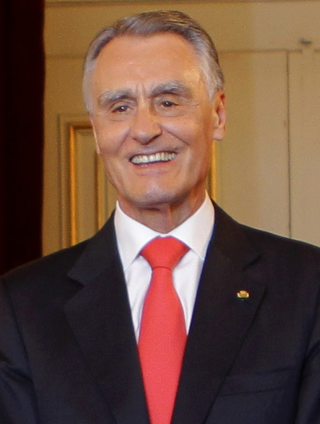
Presidential elections were held in Portugal on 23 January 2011. The elections resulted in the re-election of Aníbal Cavaco Silva to a second term as President of Portugal. Turnout in this election was very low, where only 46.52 percent of the electorate cast their ballots. Cavaco Silva won by a landslide winning all 18 districts, both Autonomous regions of Azores and Madeira and 292 municipalities of a total of 308.
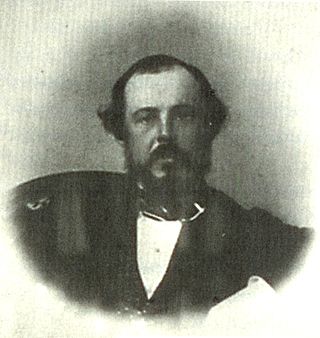
José do Canto was a Portuguese landowner and intellectual who distinguished himself as a bibliographer and promoter new agricultural technologies and species into the Azores. He was a renowned gardener and botanist responsible for the creation of botanical garden, that later bore his name, in Ponta Delgada. He was also a philosophical romantic and fan of Luís de Camões; his holdings included a large number of rare books in various languages, which were incorporated into the Azorean public library and regional archive.
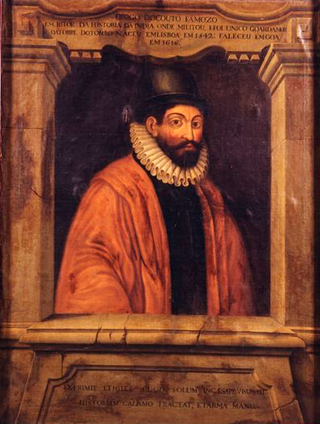
Diogo do Couto was a Portuguese historian.
Jorge Ferreira Chaves was a Portuguese architect.
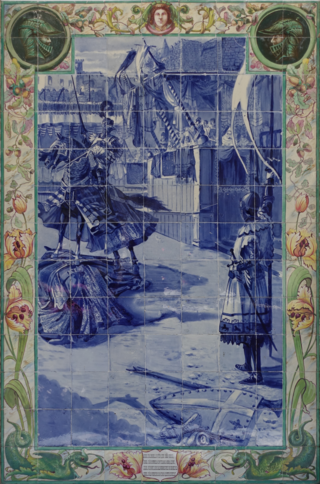
The Twelve of England is a Portuguese chivalric legend of 15th-century origin, famously related by the poet Luís de Camões in his 1572 Os Lusíadas. It tells the story of twelve Portuguese knights who travelled to England at the request of twelve English ladies to avenge their insult by a group of English knights.

The Secondary School Luís de Camões is a secondary school located in the civil parish of Arroios, in the municipality and Portuguese capital of Lisbon, classified as a Monumento de Interesse Público in 2012.

Presidential elections were held in Portugal on 24 January 2016. The election chose the successor to the President Aníbal Cavaco Silva, who was constitutionally not allowed to run for a third consecutive term.

Presidential elections are scheduled to be held in Portugal in January 2026. The elections will elect the successor to President Marcelo Rebelo de Sousa, who is barred from running for a third term.

The 2023 Portuguese Socialist Party leadership election was held on 15 and 16 December 2023. The leadership ballot was called after Prime Minister and Socialist Party Secretary-General António Costa resigned from office on 7 November 2023. The winner of this election led the Socialist Party into the 2024 legislative election.















